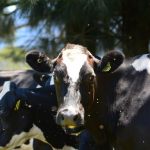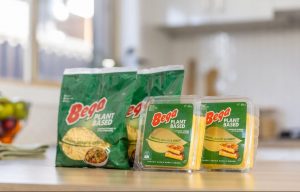
The company is now enjoying benefits such as the ability to: monitor milk quality and condition before and during transport; optimize supply to prevent wastage; decrease transport costs; and improve factory production schedules based on the quality of milk.
Bega Cheese is a master at making cheese; its flagship Bega brand holds 15.7% of the Australian retail cheese market. But it has other iconic brands, too, such as the world-famous Vegemite spread, Picky Picky peanuts and Zoosh French Onion dip. And it is not just Australians that like Bega; about a third of its revenues (as of 2019) came from exports of dairy products to around 40 countries around the world.
Bega Cheese wanted to improve the efficiency of it supply chain, increasing efficiency and improving visibility to address unique challenges. Milk has to be shipped fresh from farms to factory, quickly produced into cheeses and other products, and shipped out again – domestically and internationally – to end consumers. So, the supply chain has to be super quick and efficient.
The way it was set up was almost entirely manual – farmers had to test the milk quality and check vat levels themselves, and then phone in any data to Bega Cheese. If there had been extra production, Bega Cheese would have to rush to get tankers there quickly – if they were available. Milk tankers could sometimes deliver milk that was too warm or milk that had been shaken-up (which changes the quality). In other words, the supply chain had to be much faster, and much more efficient.
Bega Cheese turned to the Internet of Things for a solution. Bega Cheese’s GM Supply Chain, Adel Salman, knew that the IoT could be an excellent solution. He saw the potential of using real-time data in the company’s supply chain-both inbound and outbound.
Doing the heavy lifting
What he didn’t have was experience in setting up IoT projects, so he started looking around for a partner. “We are dairy supply chain experts; what we needed was a partner that could give us IoT expertise, resources, industry contacts and help with government backing,” said Salman.
He found Swinburne University of Technology, which – with its IoT lab and Industry 4.0 initiative – was an ideal choice for Bega. Swinburne did a lot of the heavy lifting to get the project off the ground, which included successfully applying for a research grant from the federal government’s Co-operative Research Centers Projects (CRC-P).
The project to optimize the productivity and competitiveness of Australia’s dairy industry, is in collaboration with Bega Cheese and three Australian milk suppliers initially- then scaling to 100 plus suppliers. NBioT was selected as the network technology type to be used with new sensors.
Then, what the project needed was an IoT platform that could start small, start quickly and then scale smoothly to include Bega Cheese’s 100 plus suppliers. That is where Software AG was brought in – to scale up the 2.5-year project with its Cumulocity IoT platform.
Professor Dimitrios Georgakopoulos, Director of Swinburne’s Internet of Things Lab and Project Researcher for Bega Cheese, said: “Cumulocity IoT has the agility and scalability we needed for this project, giving us time to focus on building out the capabilities.”
From cow to production line
In the first phase, sensors and comms are being installed across an initial three of Bega’s farms in the supply chain. Bega Cheese will soon start using the data to make quicker decisions and react in the field, optimizing transport and saving wastage and journeys.
Storage vats can be measured automatically to see how full they are. If full, the IoT platform can trigger a transport request to collect the milk from the farm, saving the farmer the trouble of phoning in. Vats can also be monitored for temperature and frequency of cleaning to ensure a low bacteria count.
Trucks can be monitored for bacteria count in their tanks and for temperature of the cargo. Bega Cheese can use real-time data to make sure the milk trucks take the best route – and avoid stopping at farms where there is not enough milk for pick-up. Bega Cheese will know when the trucks will arrive at the factory depot, for better production scheduling.
Weather is a factor in milk production; if the humidity (rainfall) and outside temperature are conducive to lush green pastures, the cows will produce more milk. Using real-time and historical data, Bega Cheese will be able to predict higher milk production with Machine Learning models; this will help it to schedule more pickups automatically and to plan in advance for increased production capacity.
“The real-time temperature and humidity data collected by the IoT sensors can find trends and enable forecasting of highly accurate milk supply,” Georgakopoulos said. Currently, this data is only collected manually, based on weeks-old data from previous pickups.
Farmers save time from not having to phone in data or pickup requests. And because Bega Cheese is aware of each farm’s quantity and quality of milk more quickly, farmers could get paid faster.
It is important to know where the milk comes from and its quality, said Salman. “Provenance is big in dairy and we can now trace the milk from farm to factory and beyond,” he said.
The second phase of the project will include gauging the condition and quality of the milk – to determine how and where it will be used in the manufacturing process.
Ultimately, Bega Cheese intends to optimize its outbound supply chain, from factory to customer. This also has application to export logistics. Bega Cheese would like to start monitoring the condition of containers on ships – so it knows when they leave and when they arrive – and to ensure the correct temperature is maintained throughout the journey.
With Cumulocity IoT, Bega Cheese will be able to lower supply chain costs while improving productivity – and it will ensure that Australians (and the rest of the world) get the cheeses they love.
The Bega Cheese project will address existing milk quality, quantity and logistics-related inefficiencies, as well as competitiveness barriers, due to the lack of live data in the inbound milk supply chain that includes Bega Cheese’s top 100 suppliers.
The key challenges in enhancing supply chain productivity and competitiveness are its just-in-time milk pickup and processing requirement and its large scale. The just-in-time requirement is due to the variability of milk quality and composition (which depends on its age, storage temperature, protein and fat content) and the need to pick up and process it to maximize returns.
To fully meet the just-in-time requirement, the supply chain must pick up and process all available milk and do so in a way that best directs the milk to its highest value conversion, taking into account quality and compositions.
These can be achieved by continuous and real-time monitoring of milk quantity and quality via the deployment of both novel and commercially available IoT sensors at the 100 dairy farms, optimizing milk pickup processes and schedules that separate high-quality milk while minimizing transport costs and ensuring adherence to milk pickup process, and highly reliable milk supply forecasting.
























